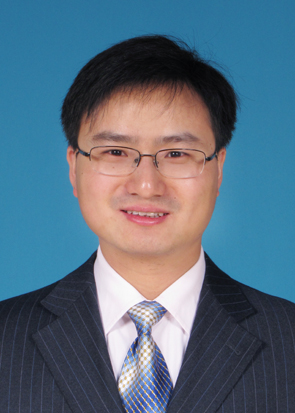教授、分子医学研究所所长
核糖核酸北京研究中心研究员
国家杰出青年基金获得者
个人简介
研究领域主要为干细胞和RNA生物学。利用细胞生物学、分子生物学、遗传学、生物化学和生物信息学等手段,结合二代测序、高通量筛选、基因编辑等新技术进行研究,研究内容涵盖干细胞相关生物学过程机制研究,疾病模型和药物靶标研究,以及与基础或应用研究相关的共性新技术开发。主要成果包括建立了miRNA 全敲除小鼠胚胎干细胞系,率先揭示了miRNA 通路对于胚胎干细胞增殖与分化的重要作用;发现了调控胚胎干细胞增殖、细胞周期、糖酵解代谢和自我更新等功能的miR-290和miR-302家族并解析了其分子机制;发明了miRNA激活CRISPR-Cas9基因编辑体系开启的技术平台,以及新型非编码RNA启动子活性报告基因技术;鉴定了调控FGF/ERK通路活性的长非编码RNA,解析了其促进胚胎干细胞自我更新的功能和分子机制;发现了调控早期胚胎发育合子基因组激活 (ZGA) 和体外全能干细胞转化的新分子通路PIAS4-SUMO2-DPPA2/4;发展了新型线粒体碱基编辑器和新型类器官培养平台;合作揭示长非编码RNA物种间保守新规则,鉴定了多个具有重要功能的保守性长非编码RNA。在学术杂志Nature Genetics(X3)、Nature Cell Biology、Nature Communications、EMBO Journal、Cell Research和PLoS Biology等以第一或通讯作者发表学术论文40余篇,总引用6000余次。现任Cell Reports、Cell Proliferation编委,中国细胞生物学学会干细胞分会委员,中国生物化学及分子生物学学会RNA分会委员,RNA分会青年委员会主任委员。
所授课程
本科生:
《干细胞与再生医学概论》(选修,2学分)
本研合上:
《核酸生物学》(选修,2学分)
《干细胞中的非编码核酸功能及机制研究进展》(选修,2学分)
《高级分子医学进展》(必修,2学分)
教育背景
1996-2000 北京大学生命科学学院生物技术系
2001-2006 University of Illinois at Urbana-Champaign (美国) 博士 导师:Scott K. Silverman
工作简历
2000.7 – 2001.6 北京大学生命科学学院技术员
2006.3 – 2010.12 美国University of California, San Francisco博士后 导师:Robert H. Blelloch
2011.1 – 2018.8 北京大学分子医学研究所研究员(助理教授)
2018.9 – 2021.1 北京大学分子医学研究所研究员(副教授)
2021.1 – 现在 北京大学未来技术学院研究员(教授)
代表性论文
1.#Huang, W., #Xiong, T., #Zhao, Y., Heng, J., Han, G., Wang, P., Zhao, Z., Shi, M., Li, J., Wang, J., Wu, Y., Liu, F., *Xi, J.J., *Wang, Y. and *Zhang, Q.C. (2024) Computational prediction and experimental validation identify functionally conserved lncRNAs from zebrafish to human. Nature Genetics, 56, 124-135.
2.#Shi, F., #Zhang, K., Cheng, Q., Che, S., Zhi, S., Yu, Z., Liu, F., Duan, F., *Wang, Y. and *Yang, N. (2024) Molecular mechanism governing RNA-binding property of mammalian TRIM71 protein. Science Bulletin, 69, 72-81.
3.Zhang, X.S., Xie, G., Ma, H., Ding, S., Wu, Y.X., Fei, Y., Cheng, Q., Huang, Y. and *Wang, Y. (2023) Highly reproducible and cost-effective one-pot organoid differentiation using a novel platform based on PF-127 triggered spheroid assembly. Biofabrication, 15, 045014.
4.#Mi, L., #Shi, M., Li, Y.X., Xie, G., Rao, X., Wu, D., Cheng, A., Niu, M., Xu, F., Yu, Y., Gao, N., Wei, W., Wang, X. and *Wang, Y. (2023) DddA homolog search and engineering expand sequence compatability of mitochondrial base editing. Nature Communications, 14, 874.
5.Wang, S.H., Hao, J., Zhang, C., Duan, F.F., Chiu, Y.T., Shi, M., Huang, X., Yang, J., *Cao, H. and *Wang, Y. (2022) Klf17 promotes human naive pluripotency through repressing MAPK3 and ZIC2. Science China Life Sciences, 65, 1985-1997.
6.*Guo, W., Wang, S., Zhang, X., Shi, M., Duan, F., Hao, J., Gu, K., Quan, L., Wu, Y., Liang Z. and *Wang, Y. (2021) Acidic pH transiently prevents the silencing of self-renewal and dampens microRNA function in embryonic stem cells. Science Bulletin, 66, 1319-1329.
7.Zhao, Y.T. and *Wang, Y. (2021) Monitoring the promoter activity of long noncoding RNAs and stem cell differentiation through knock-in of sgRNA flanked by tRNA in an intron. Cell Discovery, 53, e12914.
8.#Yan, Y.L, #Zhang, C., Hao, J., Wang, X.L., Ming, J., Mi, L., Na, J., Hu, X. and *Wang,Y. (2019) DPPA2/4 and SUMO E3 ligase PIAS4 opposingly regulate zygotic transcriptional program. PLOS Biology 17, e3000324.
9.#Wang, X.W., #Hu, L.F., Hao, J., Liao, L.Q., Chiu, Y.T., Shi, M. and *Wang,Y. (2019) A microRNA-inducible CRISPR-Cas9 platform serves as a microRNA sensor and cell-type-specific genome regulation tool. Nature Cell Biology 21, 522-530. (Highlighted by News and Views in Nature Cell Biology, 21, 416-417)
10.#Li, Y.P., #Duan, F.F., Zhao, Y.T., Gu, K.L., Liao, L.Q., Su, H.B., Hao, J., Zhang, K., Yang, N. and *Wang,Y. (2019) A TRIM71 binding long noncoding RNA Trincr1 represses FGF/ERK signaling in embryonic stem cells. Nature Communications 10, 1368.
11.Wang, X.W., Hao, J., Guo, W.T., Liao, L.Q., Huang, S., Guo, X., Bao, X., Esteban, M.A. and *Wang, Y. (2017) DGCR8-independent stable microRNA expression strategy reveals important functions of miR-290 and miR-183~182 families in mouse embryonic stem cells. Stem Cell Reports 9,1618-1629.
12.#Gu, K.L., #Zhang, Q., #Yan, Y., #Li, T.T., Duan, F.F., Hao, J., Wang, X.W., Shi, M., Wu, D.R., Guo, W.T., *Wang, Y. (2016) Pluripotency Associated miR-290/302 Family of microRNAs Promote the Dismantling of Naive Pluripotency. Cell Research 26, 350-366.
13.#Cao, Y., #Guo, W.T., Tian, S., He, X., Wang, X.W., Liu, X., Gu, K.L., Ma, X., Huang, D., Cai, Y.P., Zhang, H., *Wang, Y. and *Gao, P. (2015) miR-290/371-Mbd2-Myc Circuit Regulates Glycolytic Metabolism to Promote Pluripotency. EMBO Journal 34, 609-623.
14.Guo, W.T., Wang, X.W., Yan, Y.L., Li, Y.P., Yin, X., Zhang, Q., Melton, C., Shenoy, A., Reyes, N.A., Oakes, S.A., *Blelloch, R. and *Wang,Y. (2015) Suppression of Epithelial Mesenchymal Transition and Apoptotic Pathways by miR-294/302 Synergistically Blocks let-7-induced Silencing of Self-renewal in Embryonic Stem Cells. Cell Death and Differentiation 22, 1158-1169.
15.Wang, Y., Baskerville, S., Shenoy, A., Babiarz, J.E., Baehner, L. and *Blelloch, R. (2008) Embryonic Stem Cell Specific microRNAs Regulate the G1/S Transition and Promote Rapid Proliferation. Nature Genetics 40, 1478-1483. (Highlighted in Nature Reports Stem Cells; News and Views in Nature Genetics, 2008, 40, 1391-1392; and in Cell Stem Cell, 2009, 4, 9-10)
16.Wang, Y., Medvid, R., Melton, C., Jaenisch, R. and *Blelloch, R. (2007) DGCR8 is Essential for microRNA Biogenesis and Silencing of Embryonic Stem Cell Self-Renewal. Nature Genetics 39, 380-385.

